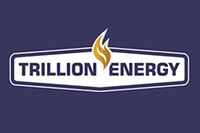A brief overview of gas price developments, supply and demand and significant market movers.
Natural gas futures plunged to a two-week low on Monday, extending declines from last week on expectations of warmer weather.
Commodity Weather Group has predicted higher-than-normal temperatures in the North American Midwest and northeast; both regions rely heavily on natural gas to heat homes.
Natural gas for February delivery dipped 13 cents, falling to $3.31 per million British thermal units on the New York Mercantile Exchange on Monday.
Traders have been selling natural gas futures on the expectation that “the coldest part of winter is behind us,” said Tom Saal, a broker at INTL Hencorp Futures, in comments to ETF Trends. “Historically, this is the time of season where you have the coldest weather.”
Azerbaijan has extended the production-sharing agreement for the Shah Deniz gas project for an additional five years in order to strengthen ties with BP (NYSE:BP,LSE:BP). Azerbaijan’s biggest gas field, and one of the largest in the world, began producing gas in 2006 and has a production capacity of 8 billion cubic meters (bcm) a year from its first phase. Its second phase is expected to commence production in 2018 and should reach another 16 bcm in annual output.
“We have agreed to extend the Shah Deniz PSA from 2031 to 2036, and the Shah Deniz partners will now proceed with phase 2,” Elshad Nassirov, vice president of the Azeri state oil company SOCAR, told Reuters.
Tanzanian leaders are struggling to maintain calm in the southern region of Mtwara after protests over a billion-dollar gas project turned deadly on the weekend, claiming eight lives. A total of 44 people have been arrested in connection with the violence, according to Africa Review.
Mtwara residents have been protesting a government decision to construct a natural gas pipeline to Dar es Salaam, seeking assurances that the $1.22-billion project will benefit the region. The 532-kilometer pipeline, which is expected to complete by 2015, will pump gas to produce electricity and alleviate the East African country’s chronic power problems.
Royal Dutch Shell (NYSE:RDS.A,LSE:RDSA) and Kinder Morgan (NYSE:KMI) announced their intention to form a company to export liquefied natural gas (LNG) from a site in Georgia.
The proposed liquefaction project would be at an existing El Paso Pipeline Partners (EPB) import terminal at Elba Island, near Savannah, according to a company statement.
EPB, controlled by Kinder Morgan, will own 51 percent of the entity and will operate the facility. Shell will own 49 percent and will buy all of its output. Project costs have not been disclosed. The total project is expected to have a liquefaction capacity of approximately 2.5 million tonnes per year of LNG, or 350 million cubic feet of gas per day.





